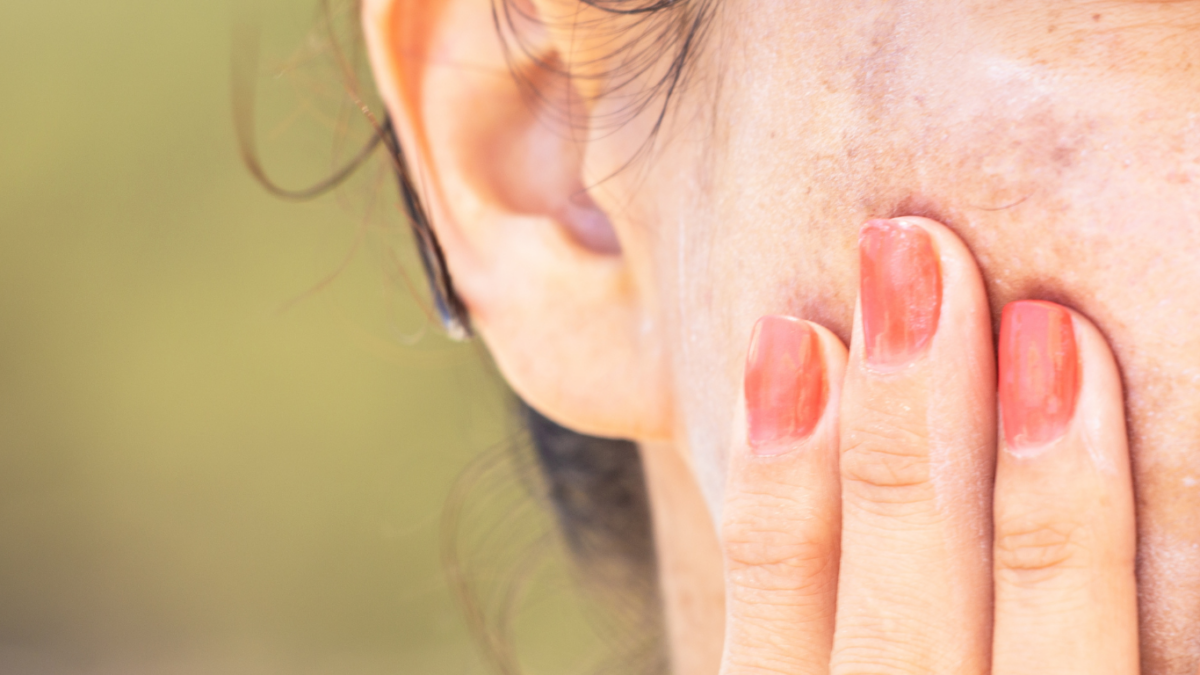Dealing with Age Spots and Hyperpigmentation During Menopause

As women, we all come across age spots and hyperpigmentation during menopause. Not only does it make us feel not attractive, but it makes others think we’re older than we are! There’s no need to deal with these problems on your own! Let’s get into it, and no, we’re not just going to skim the surface. We’re going to peel back the layers, literally and figuratively, to understand what’s happening to our skin during menopause and how we can deal with it.
To begin with, let’s acknowledge this: menopause does a number on our hormones, which affects nearly everything, from our moods to our metabolism, and yes, to our skin as well. A key player in this game is estrogen, which takes a bow during menopause, leading to various skin changes. One of these is hyperpigmentation or the darkening of some areas of the skin, and another is the appearance of age spots, also known as liver spots or sun spots.
Hyperpigmentation and age spots happen when our skin produces more melanin (the pigment that gives our skin its color) than it typically would. Sun exposure, hormonal changes, age, and even injuries can stimulate excess melanin production, leading to these darker patches or spots. Menopause, with its hormone havoc, can rev up this process.
So, how do we address these changes? First, let’s take a minute to appreciate what our bodies are going through. These changes, including the skin ones, are signals of an incredible life lived, of experience, resilience, and evolution. Let’s not just aim to erase these marks but to manage and embrace them as part of our beautifully evolving selves.
Now, on a practical note, our first line of defense is and always will be – sun protection. The sun’s harmful UV rays speed up the aging process of our skin, leading to premature wrinkles, age spots, and hyperpigmentation. Applying broad-spectrum SPF of at least 30, wearing hats, sunglasses, and seeking shade whenever possible are non-negotiables.
Next, let’s talk about skincare. A skincare routine addressing hyperpigmentation and age spots should ideally include ingredients like retinoids, vitamin C, and hydroquinone. Retinoids can speed up cell turnover, essentially helping the skin to renew itself. Vitamin C is an antioxidant that can brighten the skin and help fade dark spots. Hydroquinone is a powerful lightening agent that can reduce the appearance of age spots and hyperpigmentation, though it should be used with caution and guidance from a dermatologist.
Now, for some of us, skincare products might not cut it, and that’s okay! We have several professional treatment options available. Chemical peels, microdermabrasion, and laser therapies are procedures that can help reduce the appearance of age spots and hyperpigmentation. They do this by removing or damaging the top layers of skin, promoting new, healthier skin to grow. It’s essential, however, to discuss these treatments with a dermatologist to understand their risks and benefits fully.
Lastly, our lifestyle choices can significantly impact our skin. Healthy eating, regular exercise, adequate sleep, and managing stress go a long way in maintaining overall health, including skin health. Foods rich in antioxidants, like berries, leafy greens, and nuts, can help protect our skin from damage. Regular exercise increases blood flow, nourishing skin cells, and promoting cell turnover. Sleep and stress management are essential for hormonal balance, thus helping maintain skin health during menopause.
In conclusion, dealing with age spots and hyperpigmentation during menopause requires a multi-faceted approach. Sun protection, an appropriate skincare routine, professional treatments if needed, and healthy lifestyle choices can help manage these skin changes. Remember, the goal isn’t to erase these signs of life’s journey but to embrace them and care for our evolving selves with love and respect.
Menopause isn’t the end of anything – it’s the start of a new, powerful chapter. Let’s embrace it, spots, lines, and all, with grace, knowledge, and a good SPF! Stay fabulous, my friends. Until next time!
